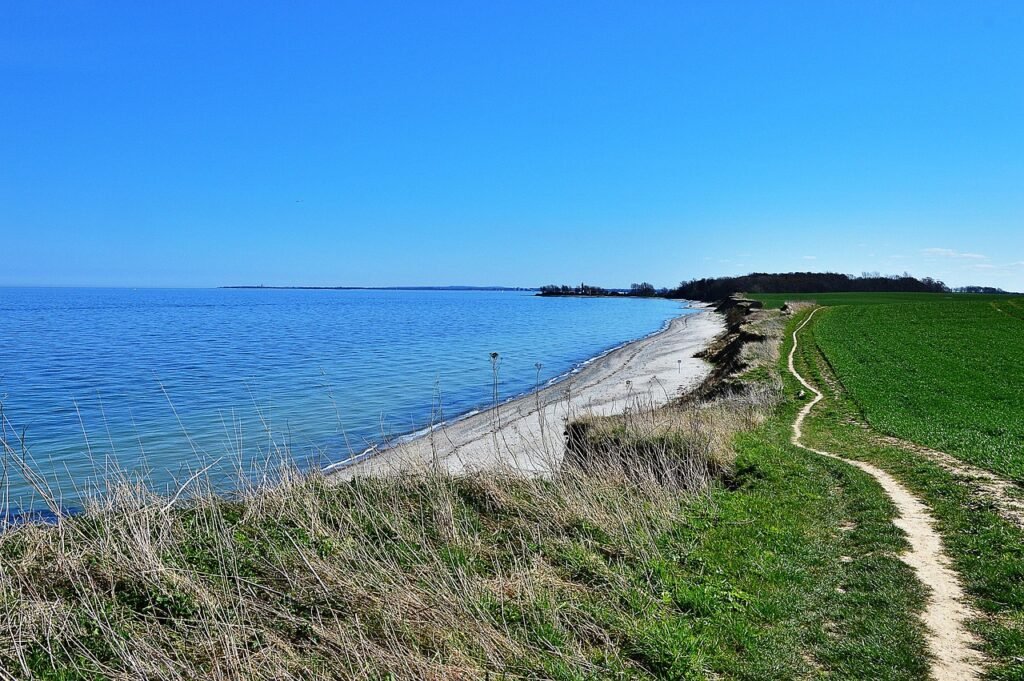Sun, sand, and sea – the allure of beaches is undeniable. From the gentle lapping of waves to the vibrant ecosystems thriving beneath the surface, beaches offer a diverse range of experiences. Whether you’re seeking a relaxing escape, thrilling water sports, or a chance to connect with nature, this guide will explore the multifaceted world of beaches, providing insights to help you plan your perfect coastal getaway.
Understanding the Allure of Beaches
The Psychological Benefits of Coastal Environments
Beaches aren’t just beautiful; they’re good for your well-being. Studies have shown that spending time by the sea can reduce stress, improve mood, and even boost creativity. The sound of the ocean waves triggers a relaxation response in the brain, while the fresh sea air is packed with negative ions, believed to have mood-boosting effects.
- Reduced Stress: The rhythmic sound of waves promotes relaxation.
- Improved Mood: Negative ions in sea air are believed to have mood-boosting effects.
- Increased Creativity: The open space and natural beauty can spark creativity.
- Vitamin D Boost: Sunlight helps your body produce Vitamin D, essential for bone health and immune function.
Think about it: a simple walk along the shore, breathing in the salty air, can be incredibly rejuvenating. Consider planning a beach vacation when you’re feeling overwhelmed or in need of a mental reset.
Diverse Beach Ecosystems
Beaches are not just expanses of sand; they are vibrant ecosystems teeming with life. From the tiny sandpipers scurrying along the shoreline to the diverse marine life inhabiting the intertidal zone, there’s always something to discover.
- Intertidal Zone: This area, submerged during high tide and exposed during low tide, is home to a variety of creatures, including crabs, starfish, and sea snails.
- Sand Dunes: These formations play a crucial role in protecting coastal areas from erosion and provide habitat for specialized plants and animals.
- Seagrass Beds: Underwater meadows of seagrass provide food and shelter for many marine species, as well as helping to improve water quality.
Visiting a beach offers a chance to observe these ecosystems firsthand. Consider bringing a field guide or joining a guided tour to learn more about the plants and animals that call the beach home.
Types of Beaches: Finding Your Perfect Match
Sandy Beaches: Classic Relaxation
Sandy beaches are the quintessential beach experience, perfect for sunbathing, building sandcastles, and enjoying leisurely swims. These beaches are typically formed from eroded rock or shells.
- White Sand Beaches: Often found in tropical destinations, these beaches are composed of finely ground coral and offer stunning turquoise waters. Example: Grace Bay, Turks and Caicos.
- Golden Sand Beaches: More common in temperate climates, these beaches are composed of quartz sand and offer a warm, inviting atmosphere. Example: Bondi Beach, Australia.
- Black Sand Beaches: Formed from volcanic rock, these beaches are a dramatic and unique landscape. Example: Reynisfjara, Iceland.
When choosing a sandy beach, consider factors like water temperature, wave conditions, and the availability of amenities like restrooms and food vendors.
Rocky Beaches: Exploring the Intertidal Zone
Rocky beaches offer a different kind of beach experience, one that focuses on exploration and discovery. These beaches are characterized by rocky outcrops, tide pools, and diverse marine life.
- Tide Pooling: Explore the fascinating creatures that inhabit the tide pools, such as sea anemones, crabs, and small fish. Be sure to observe them carefully and leave them undisturbed.
- Rock Climbing: Some rocky beaches offer opportunities for rock climbing, but be sure to check safety regulations and have appropriate equipment.
- Photography: Rocky beaches provide dramatic backdrops for photography, especially during sunrise and sunset.
Be sure to wear sturdy shoes when exploring rocky beaches to protect your feet from sharp rocks and slippery surfaces.
Shelling Beaches: A Collector’s Paradise
For shell enthusiasts, shelling beaches offer a treasure trove of beautiful and unique shells. The best time to go shelling is after a storm or during low tide.
- Sanibel Island, Florida: Known as the “Shelling Capital of the World,” Sanibel Island is renowned for its abundance of shells.
- Ocracoke Island, North Carolina: This barrier island offers pristine beaches and a wide variety of shells.
- Jeffreys Bay, South Africa: This surf town is also a great place to find unique shells.
Remember to only collect shells that are empty and dead. Live shells are an important part of the beach ecosystem.
Activities to Enjoy at the Beach
Water Sports: Thrills and Adventure
Beaches offer a wide range of water sports, from surfing and swimming to kayaking and paddleboarding.
- Surfing: Catch some waves and experience the thrill of riding the ocean.
- Swimming: Enjoy a refreshing dip in the ocean. Be sure to swim in designated areas and pay attention to lifeguard warnings.
- Kayaking: Explore the coastline and get a closer look at marine life.
- Paddleboarding: A great way to enjoy the water and get some exercise.
- Snorkeling & Diving: Explore the underwater world and discover colorful coral reefs and marine life.
Before engaging in any water sports, be sure to check the weather conditions and water conditions. Wear appropriate safety gear and follow all instructions from instructors or lifeguards.
Relaxation and Recreation: Unwinding by the Sea
If you prefer a more relaxed beach experience, there are plenty of ways to unwind and enjoy the beauty of the coast.
- Sunbathing: Soak up the sun and get a healthy dose of Vitamin D. Remember to wear sunscreen to protect your skin from harmful UV rays.
- Reading: Curl up with a good book and enjoy the peace and quiet of the beach.
- Picnicking: Pack a lunch and enjoy a meal with a stunning ocean view.
- Beach Games: Play volleyball, frisbee, or other beach games with friends and family.
- Stargazing: On clear nights, beaches offer a fantastic opportunity to gaze at the stars.
Remember to bring a beach towel, sunscreen, sunglasses, and a hat to protect yourself from the sun.
Responsible Beach Tourism: Protecting Coastal Environments
Minimizing Your Impact
As visitors to these beautiful environments, it’s crucial to minimize our impact and help preserve them for future generations.
- Reduce, Reuse, Recycle: Bring your own reusable water bottle and bags to reduce waste. Dispose of trash properly in designated bins.
- Leave No Trace: Pack out everything you pack in, including food wrappers, bottles, and other trash.
- Respect Wildlife: Observe wildlife from a distance and avoid disturbing their habitat.
- Use Reef-Safe Sunscreen: Traditional sunscreens contain chemicals that can harm coral reefs. Choose reef-safe sunscreen that is free of oxybenzone and octinoxate.
- Support Local Businesses: Patronize local restaurants and shops to support the local economy and sustainable tourism practices.
By following these simple guidelines, we can all help protect the beaches we love.
Supporting Conservation Efforts
Many organizations are working to protect beaches and coastal environments. Consider supporting these efforts through donations, volunteering, or simply spreading awareness.
- The Surfrider Foundation: A non-profit organization dedicated to protecting the world’s oceans and beaches.
- The Ocean Conservancy: An organization working to protect the world’s oceans through science-based advocacy.
- Local Beach Cleanup Organizations: Many local communities have organizations that organize beach cleanups.
By supporting these organizations, you can help ensure that beaches remain healthy and vibrant for generations to come.
Conclusion
Beaches offer a diverse range of experiences, from thrilling water sports to relaxing escapes. By understanding the different types of beaches, the activities they offer, and the importance of responsible tourism, you can plan your perfect coastal getaway and help protect these valuable ecosystems for the future. So pack your bags, grab your sunscreen, and get ready to experience the magic of the beach!

